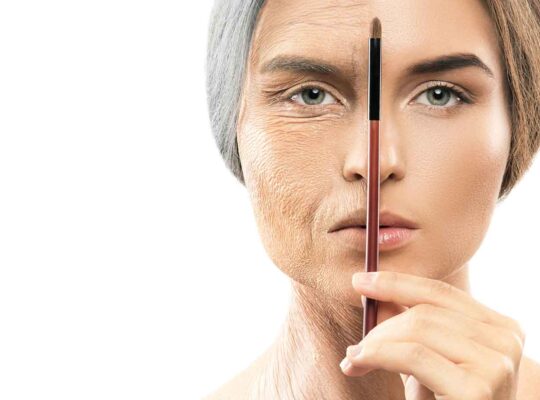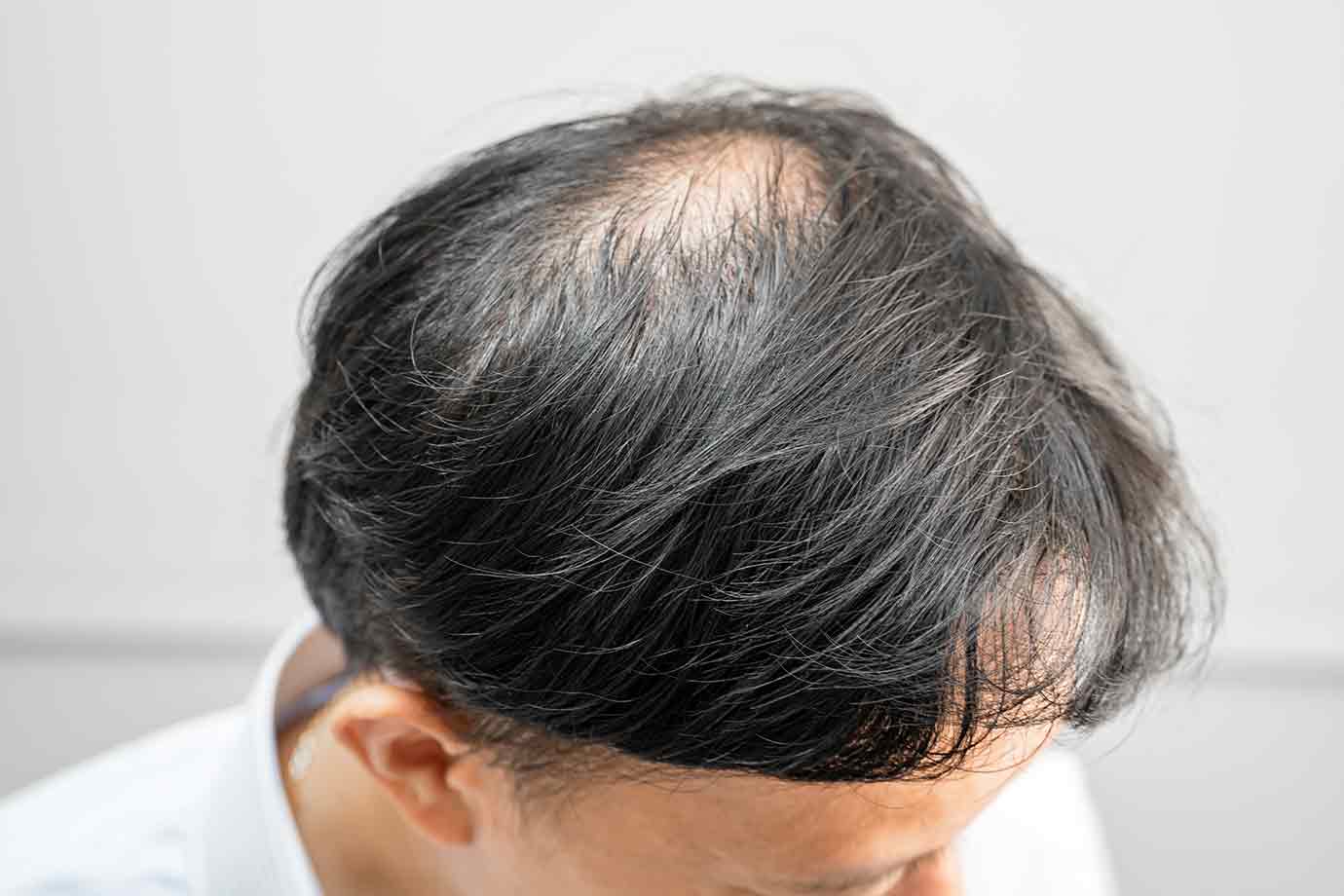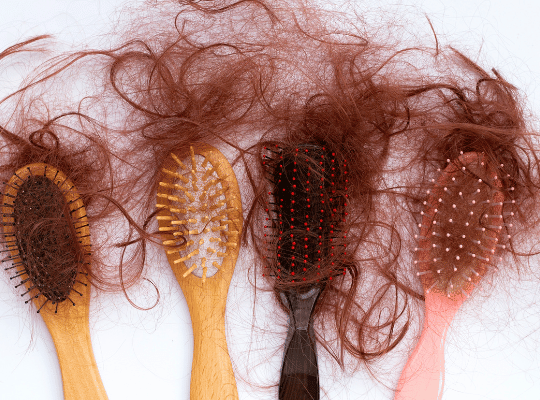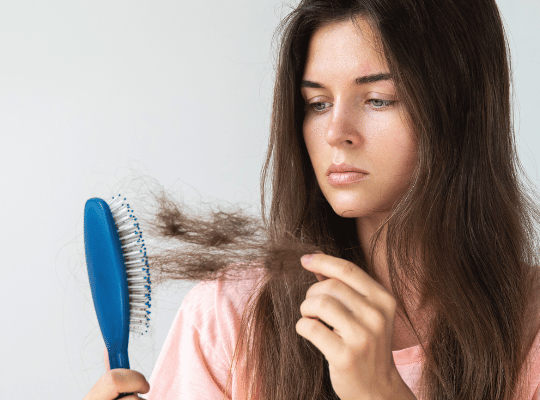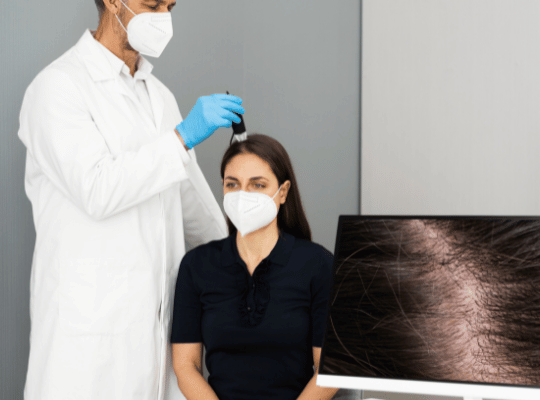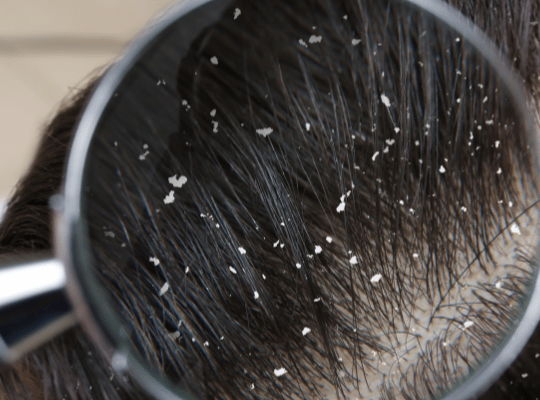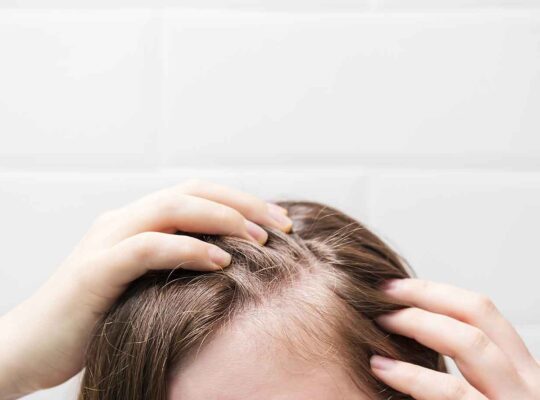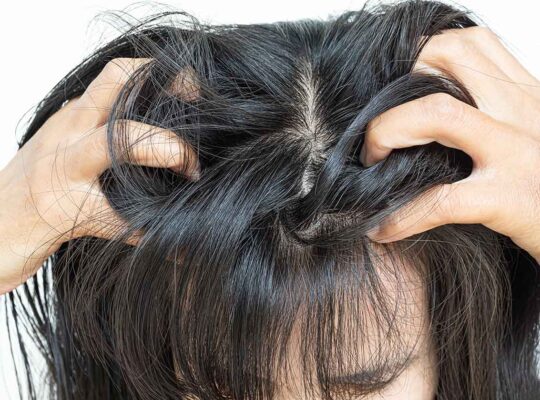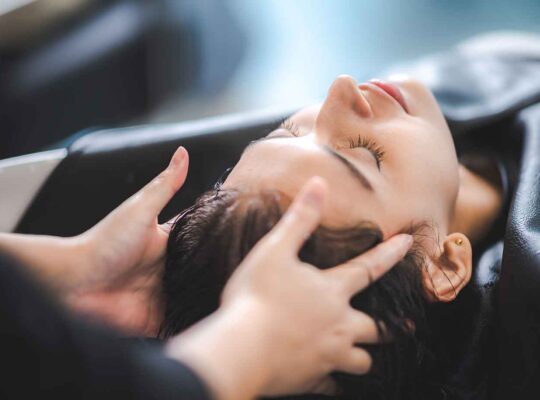Understanding Alopecia Areata: Causes, Stress, Prevention, and Prognosis
Have you ever wondered why some people suddenly lose patches of hair or why their hair might even fall out completely? This can be a scary and confusing experience, and it’s something that affects a lot of people. The responsible condition is alopecia areata, an autoimmune disorder that causes hair loss. This hair loss often shows up as small, round patches on the scalp, but it can also happen on other parts of the body. Understanding what causes alopecia areata, how to prevent it, and what the future might hold if you or someone you know is affected can help you feel more in control. Let’s explore the causes of alopecia areata, look at the role of stress, discuss prevention strategies, and determine if this condition is permanent.
Main Causes of Alopecia Areata
Autoimmune Response: Why Does the Body Attack Its Own Hair?
Alopecia areata happens because of something called an autoimmune response. Normally, your immune system is like a security team for your body, protecting you from harmful invaders like bacteria and viruses. But sometimes, this security team gets confused and starts attacking parts of your own body by mistake. In the case of alopecia areata, the immune system mistakenly targets your hair follicles—the tiny pockets in your skin where hair grows. When this happens, the hair follicles shrink and stop making hair, which leads to hair loss.
Genetic Factors: Does Alopecia Areata Run in Families?
Another reason some people get alopecia areata is because of their genes. If someone in your family, like a parent or grandparent, has had alopecia areata, you might be more likely to get it too. Scientists think certain genes make some people more likely to have this condition. But don’t worry—just because you have a family member with alopecia areata doesn’t mean you will definitely get it. It just means you have a higher chance compared to someone without a family history.
Environmental Triggers: What External Factors Can Play a Role?
While your immune system and genetics are the main causes, certain things in your environment can also trigger alopecia areata. These are known as environmental triggers. For example, you might notice that your hair starts falling out after a really stressful event, like moving to a new school or dealing with a tough situation at home. Other triggers might include getting sick, being exposed to certain chemicals, or even changes in the weather. These things don’t directly cause alopecia areata, but they can make it more likely to happen if you’re already at risk.
Is Alopecia Areata Caused by Stress?
Stress as a Trigger: Can Stress Make Your Hair Fall Out?
You’ve probably heard that stress can make your hair fall out, but is that really true when it comes to alopecia areata? Well, the answer is yes and no. Stress doesn’t actually cause alopecia areata on its own, but it can trigger it in people who are already prone to the condition. Imagine your immune system is like a cup. For some people, that cup is already pretty full because of genetics or other factors. Stress can be the final drop that makes the cup overflow, triggering alopecia areata.
Scientific Evidence: What Do Studies Say About Stress and Alopecia Areata?
Scientists have done a lot of studies to understand the link between stress and alopecia areata. What they’ve found is that while stress isn’t the main cause, it can definitely make things worse or trigger the condition if you’re already at risk. For example, some studies have shown that people who go through really stressful situations are more likely to experience hair loss or have a flare-up of alopecia areata. However, the exact connection between stress and this condition isn’t fully clear yet.
Managing Stress: How Can You Reduce Stress to Protect Your Hair?
Since stress can play a role in triggering alopecia areata, managing stress is really important—not just for your hair, but for your overall health. Here are some easy ways to reduce stress:
- Practice Relaxation Techniques: Doing things like deep breathing, meditation, or yoga can help calm your mind and reduce stress.
- Stay Active: Regular exercise is a great way to manage stress. It doesn’t have to be intense—even a daily walk can help.
- Get Enough Sleep: Your body needs sleep to recover from stress. Try to get at least 8 hours of sleep each night.
- Talk About It: Sometimes, just talking about what’s stressing you out with a friend, family member, or counselor can make a big difference.
- Do Things You Enjoy: Whether it’s reading, drawing, or playing a sport, doing something you love can help take your mind off stress.
The main causes of Alopecia Areata
Lifestyle Modifications: How Can Healthy Habits Help?
While there’s no guaranteed way to prevent alopecia areata, living a healthy lifestyle can help lower your risk. Here’s how:
- Eat a Balanced Diet: Eating a variety of foods, including fruits, vegetables, lean proteins, and whole grains, can keep your body strong and healthy. Make sure you’re getting enough vitamins and minerals, especially those that are good for hair, like biotin, zinc, and iron.
- Exercise Regularly: Staying active helps keep your immune system in balance, which can reduce the risk of autoimmune problems like alopecia areata. Plus, exercise is a great way to manage stress.
- Get Plenty of Sleep: Your body does a lot of its repair work while you’re sleeping, so make sure you’re getting enough rest each night.
- Stay Hydrated: Drinking enough water is important for overall health, including the health of your skin and hair.
Avoiding Triggers: What Should You Watch Out For?
If you know that certain things can trigger your alopecia areata, it’s important to try to avoid them. Here are a few common triggers to watch out for:
- Stress: As we’ve talked about, stress can be a big trigger, so managing stress is key.
- Chemical Exposures: Some people find that certain hair products or environmental chemicals can trigger their alopecia areata. Try to use gentle, natural products whenever possible.
- Infections: Getting sick can sometimes trigger a flare-up. It’s important to take care of your health by washing your hands regularly and avoiding close contact with people who are sick.
- Temperature Changes: Some people notice their alopecia areata flares up in extreme cold or heat, so it’s good to protect your skin from the elements.
Regular Check-Ups: Why Are They Important?
Seeing your doctor regularly can help catch any health issues early, including alopecia areata. If you start to notice any signs of hair loss, it’s a good idea to check in with your doctor right away. They can help you figure out what’s going on and recommend the best course of action. Early intervention can sometimes prevent hair loss from getting worse.
Is Alopecia Areata a Lifelong Condition?
Nature of the Condition: Why Is Alopecia Areata So Unpredictable?
One of the most frustrating things about alopecia areata is that it’s very unpredictable. For some people, the hair loss might just be a one-time thing, with hair growing back on its own after a few months. For others, the condition might come and go, with periods of hair loss followed by periods of regrowth. Unfortunately, there’s no way to predict exactly how alopecia areata will affect any one person.
Possibility of Regrowth: Can Your Hair Grow Back?
The good news is that hair often does grow back in people with alopecia areata. In many cases, the hair follicles aren’t permanently damaged, which means they can start producing hair again once the immune system calms down. However, the new hair might be a different color or texture than before. Some people might experience complete regrowth, while others might only see partial regrowth. Factors like how much hair was lost and how long you’ve had the condition can influence how much regrowth you can expect.
Long-Term Management: How Can You Cope with Ongoing Hair Loss?
Living with alopecia areata can be challenging, especially if the hair loss is ongoing. But there are strategies to help you cope and maintain a good quality of life:
- Wigs and Hairpieces: Many people with alopecia areata choose to wear wigs or hairpieces to cover their hair loss. There are lots of options available, so you can find something that feels comfortable and looks natural.
- Scalp Treatments: Some treatments, like corticosteroid creams or injections, can help reduce inflammation and encourage hair regrowth.
- Support Groups: Talking to others who are going through the same thing can be really helpful. There are many support groups, both in-person and online, where you can share your experiences and get advice.
- Counseling: If you’re feeling sad or anxious about your hair loss, talking to a counselor or therapist can help. They can provide strategies to help you manage your feelings and cope with the challenges of living with alopecia areata.
Conclusion
Alopecia areata is a complex and often unpredictable condition, but understanding it can help you feel more in control. While the main causes are related to the immune system and genetics, stress and environmental factors can also play a role in triggering hair loss. Although there’s no sure way to prevent alopecia areata, living a healthy lifestyle and managing stress can reduce your risk. If you do experience hair loss, it’s important to know that it’s not necessarily permanent—many people see their hair grow back over time. Whether you’re dealing with ongoing hair loss or just a temporary patch, there are plenty of ways to manage the condition and live a full, happy life. If you’re experiencing symptoms of alopecia areata, don’t hesitate to seek medical advice and support. There are many resources available to help you navigate this condition.
Frequently Asked Questions (FAQs)
- What triggers alopecia areata?
Alopecia areata can be triggered by various factors, including stress, infections, allergies, and hormonal changes. Identifying specific triggers can aid in management.
- Is there a cure for alopecia areata?
Currently, there is no definitive cure for alopecia areata. However, several treatment options exist to promote hair regrowth and manage symptoms.
- Can children develop alopecia areata?
Yes, alopecia areata can affect individuals of any age, including children. Early intervention and treatment can help manage the condition effectively.
- How is alopecia areata diagnosed?
Diagnosis is typically made through a physical examination and medical history. In some cases, a dermatologist may perform a scalp biopsy to assess the condition.
- Does alopecia areata always lead to total hair loss?
No, alopecia areata does not always result in total hair loss. Many individuals experience patchy hair loss or spontaneous regrowth, while others may face recurring episodes.


